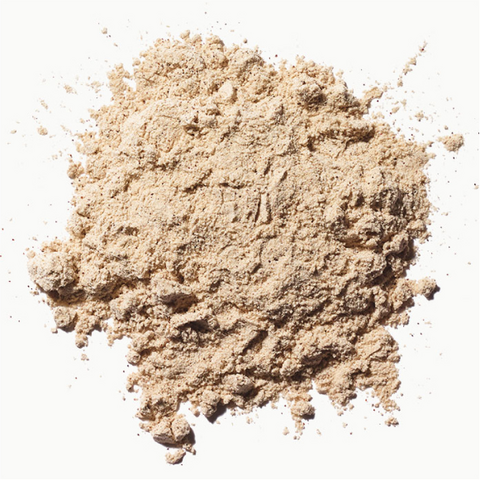Let’s talk about two common nutritional deficiencies: Vitamin D and Magnesium! Around 1 billion people worldwide are deficient in Vitamin D, also known as the sunshine vitamin, while over half of us have a Magnesium deficiency, an essential mineral and electrolyte (1).
For that reason, these two nutrients are often consumed as supplements to help fill in dietary gaps. But can you take Vitamin D and Magnesium together? How do these two micronutrients react with each other — and for that matter, what are they doing in your body in the first place?
If you’re looking to address a potential deficiency and build a foundation for better health, here’s everything you need to know about taking Vitamin D and Magnesium together.
Can You Take Vitamin D and Magnesium Together?
With some supplements, you need to be strategic about timing them out, since certain micronutrients can compete with each other in the body for absorption (2). But when it comes to Vitamin D and Magnesium, you can take both at the same time.
In fact, not only can you take these dietary supplements together, but taking them in tandem could offer some significant benefits if you have low Magnesium or vitamin D levels.
Essentially, your body needs the right levels of Magnesium to properly metabolize Vitamin D. That’s because this mineral helps convert Vitamin D from its inactive form into a bioavailable form that your body can use (3).
And because low Magnesium levels are common, a Vitamin D supplement on its own might not be helpful in correcting a deficiency for many people. Conversely, you also want to be conscious of how Vitamin D might affect your Magnesium levels. Excessive Vitamin D intake can deplete Magnesium, so it’s a good idea to ask your healthcare practitioner if taking both together could yield the best results (4).
Benefits of Taking Vitamin D and Magnesium
Both of these micronutrients play vital roles in maintaining our physiological health. Here’s an overview of how Vitamin D and Magnesium function in your body, and signs that could point to a deficiency.
What Does Vitamin D Do For Your Body
Vitamin D is a fat soluble vitamin that’s naturally present in certain foods, like mushrooms, egg yolks, and salmon. It’s unique among vitamins because your body can actually synthesize Vitamin D endogenously when your skin is exposed to sunlight, triggering a chemical reaction from the ultraviolet B (UVB) rays (5).
One of the primary functions of Vitamin D is to help regulate Calcium and Phosphorus levels in the body, essential for healthy bones and teeth. Specifically, it promotes Calcium absorption in your gut so that enough is available for bone mineralization and remodeling. Without sufficient Vitamin D, you may be susceptible to brittle bones or a bone fracture.
Adequate Vitamin D also supports a healthy inflammatory response and a balanced immune system, helping defend against infections and diseases.
Vitamin D’s other roles in the body include the modulation of internal processes like cell growth, neuromuscular function, and glucose metabolism.
Vitamin D deficiency is relatively common, especially in environments with limited sunlight, and it can lead to various health problems. If you think your levels might be low, talk to your doctor for guidance on how to choose the right vitamin D supplement. A Vitamin D deficiency can show up as:
- Lower bone mass
- Fatigue
- Low mood
- Muscle pain, aches, weakness, and twitching
- Impaired immune function
- Delayed wound healing
- Thinning hair
You can find Vitamin D in your diet, sunshine, and supplements. However, the Vitamin D that you obtain is biologically inert and must be activated in the body before it can be used, in a process known as hydroxylation (6). And that brings us back to Magnesium.
What Does Magnesium Do For Your Body?
Magnesium is an essential mineral and one of the most abundant in the body, found primarily in your bones, muscles, and soft tissues. It’s involved in over 300 enzymatic reactions, making it crucial for maintaining bodily health (7).
One of the key benefits of Magnesium is its role in bone health, working with Calcium and Phosphorus to support bone density and structure.
Magnesium also plays a crucial part in muscle function, helping muscles to contract and relax properly — and this is important for your heart, since it enables you to maintain a regular heartbeat.
In proper levels, Magnesium helps you manage blood sugar, keep your nerves functioning as they’re supposed to, create new DNA, and regulate blood pressure. And like we mentioned, it’s also needed for that enzymatic activation of Vitamin D.
Every cell in your body needs Magnesium to function. However, it’s important to note that many of us fall short of our Magnesium needs thanks to various factors, including modern soil depletion, inadequate dietary intake, certain medical conditions, medications, and excessive alcohol use. A Magnesium deficiency can show up as:
- Muscle cramps and spasms
- Weakness and fatigue
- Irregular heartbeat
- Tingling or numbness
- Nausea and vomiting
- Loss of appetite
- Irritability and anxiety
- Decrease in bone density
You can find Magnesium naturally in foods like spinach, pumpkin seeds, avocados, beans, bananas, and dark chocolate. But since most of us have low Magnesium levels, a Magnesium powder supplement can also be a good idea. Magnesi-Om® contains 3 bioavailable types of Magnesium (with the addition of L-Theanine) to support relaxation, sleep, brain health, and regularity.* The powder dissolves instantly in water and comes in two zero sugar flavors: berry and blue lemon.
How Much Vitamin D to Take With Magnesium?
The amount of Vitamin D and Magnesium dietary supplement you take will depend on your age, sex, dietary intake, and health status.
The best source of Vitamin D is sunlight, but many people get minimal sun exposure or actively avoid direct sunlight to protect their skin health. That’s where diet and supplements come in. The current recommendation for Vitamin D intake is 600-800 IU (International Units) or 15-20 micrograms daily for adults aged 19-70. That’s in order to maintain normal levels to maintain healthy bone density and adequate Calcium metabolism, so for optimal health and wellness that amount will be greater.
To avoid a Magnesium deficiency, it’s currently recommended that adult women get 310-320 mg of Magnesium a day and that adult men get slightly more, or 400-420 mg. And again, since that number is intended to prevent a deficiency, it’s probable that your optimal intake will be greater.
That being said, if you suspect you’re deficient in these or other nutrients, it’s always best to refer to your healthcare practitioner for proper evaluation and guidance.

What Time of Day Should I Take Vitamin D and Magnesium?
Vitamin D is fat soluble, which means that it doesn’t dissolve in water but rather is best absorbed along with high fat foods. Because of this, it’s a good idea to take your Vitamin D with a meal in order to increase the vitamin in your blood levels (8, 9). Foods like avocados, nuts, and seeds are healthy sources of fat that can help boost your absorption of Vitamin D.
There is some evidence that Vitamin D could impact sleep. For instance, low levels of the vitamin have been associated with sleep disturbances and poor sleep quality in several studies (10, 11, 12). However, other anecdotal reports claim that Vitamin D intake at night negatively affected sleep quality. The science on the best time to take Vitamin D is out, so until more studies are done, you may want to simply experiment until you find the best time for you.
Taking Magnesium for relaxation can help increase calm by regulating a neurotransmitter known as Gamma-Aminobutyric acid (GABA for short). This amino acid helps slow down your brain for the night ahead, calming communications between your mind and your nervous system to help you relax and eventually fall asleep.
A Magnesium dietary supplement also regulates our production of the sleep hormone Melatonin, and a study from 2019 suggests that this relationship between the mineral Magnesium and the hormone Melatonin is vital to our cellular sleep-wake cycles (13).
Because Magnesium can help support your stress management, allowing you to unwind, many people prefer to take a Magnesium supplement at night. Take 1 tsp of Magnesi-Om® in water every night or any time you need to chill.
Takeaways
Vitamin D and Magnesium supplements can play a pivotal role in optimizing your overall health.
The sunshine vitamin acts as a regulator in our bodies, influencing everything from bone health to immune function. But obtaining adequate sun exposure or dietary sources can be a challenge, especially in certain seasons or regions, and Vitamin D deficiency is relatively common.
Magnesium serves as a cofactor in countless enzymatic reactions within our bodies. From energy metabolism to muscle function and stress management, Magnesium keeps things running smoothly. Still, over 50% of us are low in Magnesium due to factors like soil depletion in our modern agricultural systems.
Supplementation can help correct these deficiencies and ensure your body has the resources it needs to be in balanced health. Taken together, these two essential nutrients can have a symbiotic relationship, with optimal Magnesium levels helping to convert Vitamin D into a form that your body can use.
Whether you’re basking in the sun or staying in the shade, the synergistic effects of Vitamin D and Magnesium supplements can be a powerful step to consider for building a foundation of health.
Sources
- Naeem Z. (2010). Vitamin d deficiency- an ignored epidemic. International journal of health sciences, 4(1), V–VI. https://www.ncbi.nlm.nih.gov/pmc/articles/PMC3068797/
- Reddy, P., & Edwards, L. R. (2019). Magnesium Supplementation in Vitamin D Deficiency. American journal of therapeutics, 26(1), e124–e132. https://pubmed.ncbi.nlm.nih.gov/28471760/
- Zitterman, A. (2013). Magnesium deficit - overlooked cause of low vitamin D status? https://bmcmedicine.biomedcentral.com/articles/10.1186/1741-7015-11-229#Sec1
- Reddy, Pramod MD*; Edwards, Linda R. MD. Magnesium Supplementation in Vitamin D Deficiency. American Journal of Therapeutics 26(1). https://journals.lww.com/americantherapeutics/Abstract/2019/02000/Magnesium_Supplementation_in_Vitamin_D_Deficiency.20.aspx
- National Library of Medicine, Vitamin D Fact Sheet. https://ods.od.nih.gov/factsheets/VitaminD-HealthProfessional/
- Liu, Ya et al (2022). Dietary Magnesium Intake Level Modifies the Association Between Vitamin D and Insulin Resistance: A Large Cross-Sectional Analysis of American Adults. https://www.frontiersin.org/articles/10.3389/fnut.2022.878665/full#:~:text=The%20enzymatic%20activation%20of%2025,are%20too%20high%20(22).
- National Library of Medicine, Magnesium Fact Sheet. https://ods.od.nih.gov/factsheets/Magnesium-HealthProfessional/
- Mulligan, G. B., & Licata, A. (2010). Taking vitamin D with the largest meal improves absorption and results in higher serum levels of 25-hydroxyvitamin D. https://pubmed.ncbi.nlm.nih.gov/20200983/
- Dawson-Hughes, B., Harris, S. S., Lichtenstein, A. H., Dolnikowski, G., Palermo, N. J., & Rasmussen, H. (2015). Dietary fat increases vitamin D-3 absorption. https://pubmed.ncbi.nlm.nih.gov/25441954/
- Han, B., Zhu, F. X., Shi, C., Wu, H. L., & Gu, X. H. (2017). Association between Serum Vitamin D Levels and Sleep Disturbance in Hemodialysis Patients. https://www.ncbi.nlm.nih.gov/pmc/articles/PMC5331570/
- Jung, Y. S. et al (2017). The relationship between serum vitamin D levels and sleep quality in fixed day indoor field workers in the electronics manufacturing industry in Korea. https://pubmed.ncbi.nlm.nih.gov/28652922/
- Bertisch, S. M., Sillau, S., de Boer, I. H., Szklo, M., & Redline, S. (2015). 25-Hydroxyvitamin D Concentration and Sleep Duration and Continuity: Multi-Ethnic Study of Atherosclerosis. https://www.ncbi.nlm.nih.gov/pmc/articles/PMC4507736/
- Boonstra E, de Kleijn R, Colzato LS, Alkemade A, Forstmann BU, Nieuwenhuis S. Neurotransmitters as food supplements: the effects of GABA on brain and behavior. https://www.ncbi.nlm.nih.gov/pmc/articles/PMC4594160/

.png?v=1696915334863)
.png?v=1696915344077)











